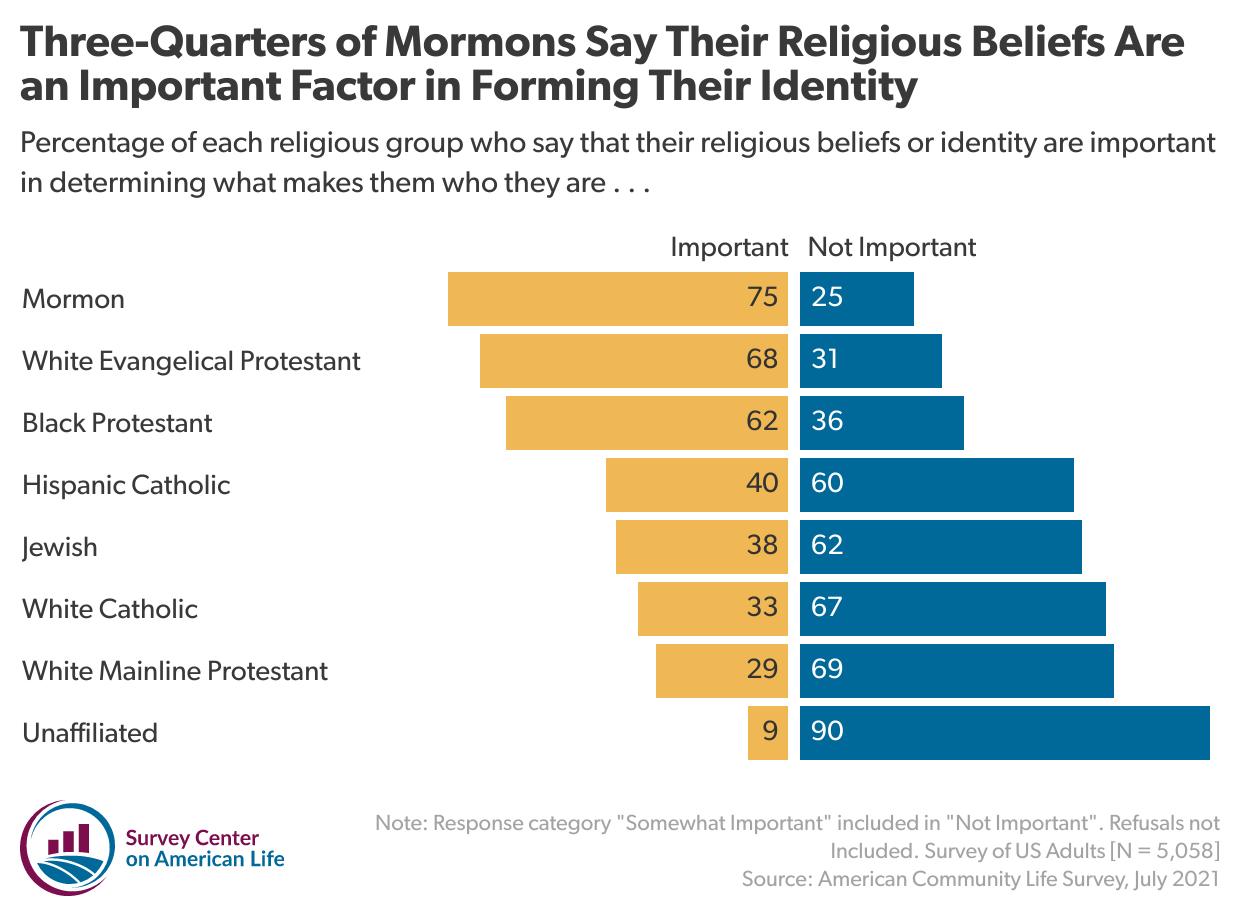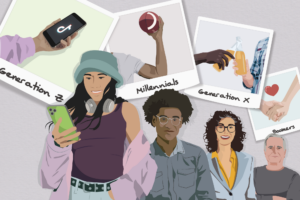Religion is Not an Important Source of Identity For Many Americans
January 21, 2022

Despite recent trends documenting an overall decline in religious belief, practice, and affiliation, most Americans still identify with a particular religious tradition. But surprisingly, a significant number of religious Americans say their religious beliefs or identity are not central to who they are. A majority of both White (67 percent) and Hispanic (60 percent) Catholics, white mainline Protestants (69 percent), and Jewish Americans (62 percent) say religion is not an important part of their identity. In contrast, three-quarters (75 percent) of Mormons and a majority of White evangelical Protestants (68 percent) and Black Protestants (62 percent) say their religious beliefs are an important part of their identity. Mormons stand out not only for their strong religious identities, but also for their unique attachment to their communities. This may help explain why so many members of the LDS Church say their religious identity is so important.








